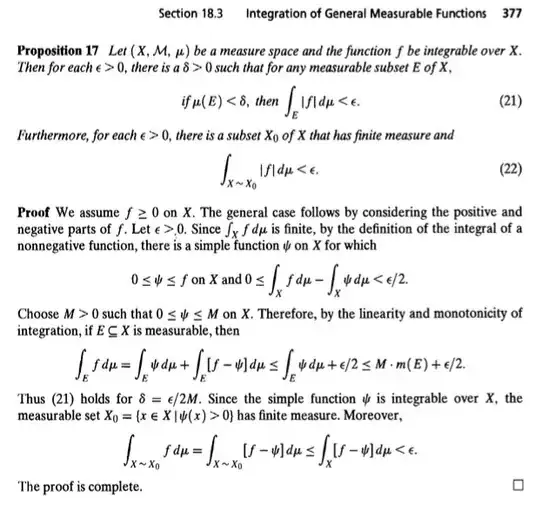I tried to show that the continuous functions on $[0,1]$ are dense in $L^p[0,1]$ for $ 1 \leq p< \infty $
by using Lusin's theorem.
I proceeded as follows..
By using Lusin's theorem, for any $f \in L^p[0,1]$, for any given $ \epsilon $ $ > $ 0, there exists a closed set $ F_\epsilon $ such that $ m([0,1]- F_\epsilon) < \epsilon$ and $f$ restricted to $F_\epsilon$ is continuous.
Using Tietze's extension theorem, extend $f$ to a continuous function $g$ on $[0,1]$. We claim that $\Vert f-g\Vert_p $ is sufficiently small.
$$ \Vert f-g\Vert_p ^p = \displaystyle \int_{[0,1]-F_\epsilon} |f(x)-g(x)|^p dx $$ $$ \leq \displaystyle \int_{[0,1]-F_\epsilon} 2^p (|f(x)|^p + |g(x)|^p) dx $$ now using properties of $L^p$ functions, we can make first part of our integral sufficiently small. furthermore, since $g$ is conti on $[0,1]$, $g$ has an upper bound $M$, so that second part of integration also become sufficiently small.
I thought I solved problem, but there was a serious problem.. our choice of g is dependent of $\epsilon$ , so constant $M$ is actually dependent of $\epsilon$, so it is not guaranteed that second part of integration becomes 0 as $\epsilon $ tends to 0.
I think if our choice of extension can be chosen further specifically, for example, by imposing $g \leq f$ such kind of argument would work. Can anyone help to complete my proof here?
